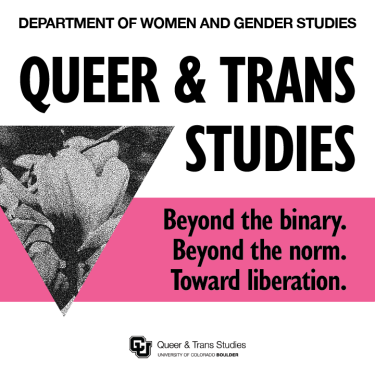Queer & Trans Studies
QTS staff are available to assist students, staff, and faculty on weekdays from 9:00 am to 5:00 pm.
The best way to reach us is by emailing QTS@Colorado.EDU
Did You Know?
The Queer and Trans Studies program offers scholarships for students who show an aptitude for leadership and involvement with queer and trans issues! Learn more about the Karen Raforth Scholarship, and other funding opportunities for students.


